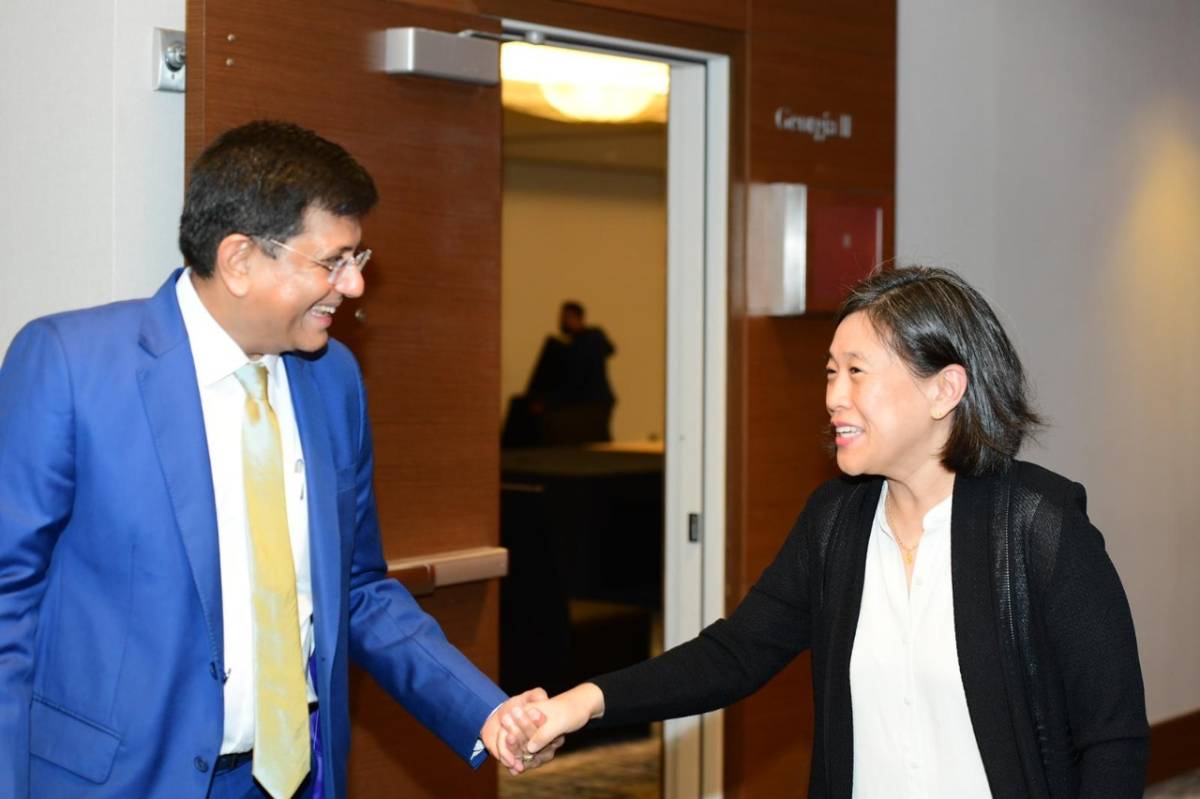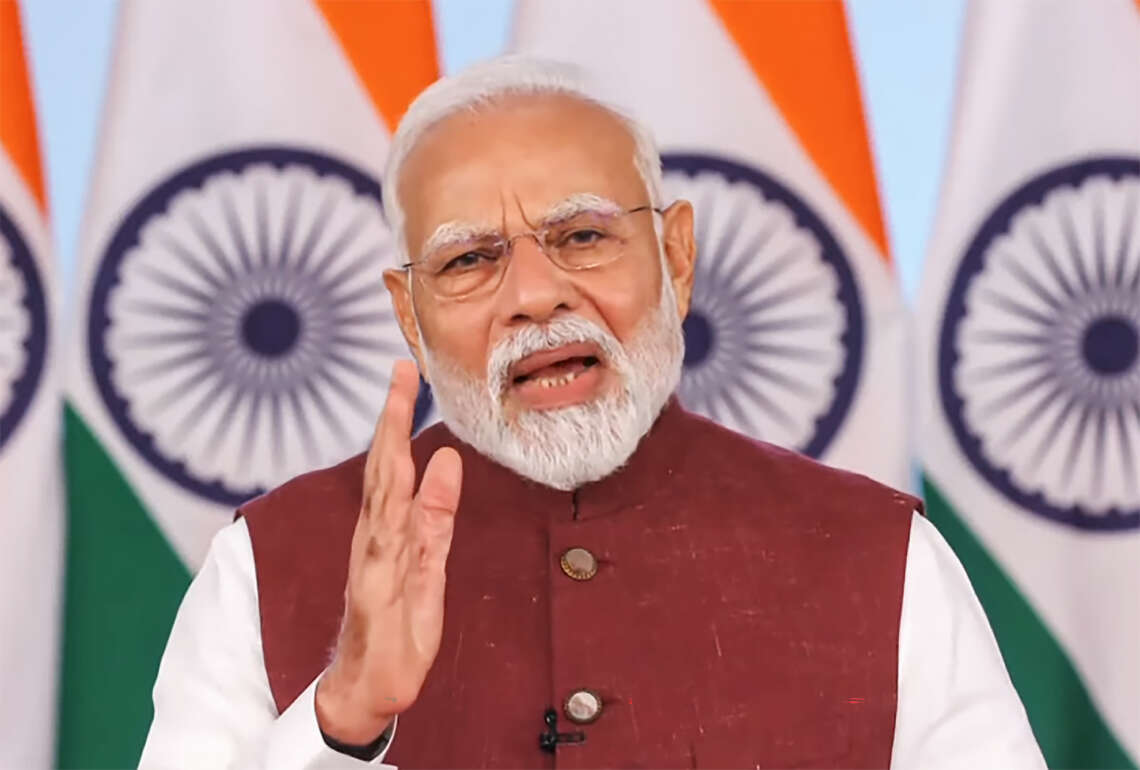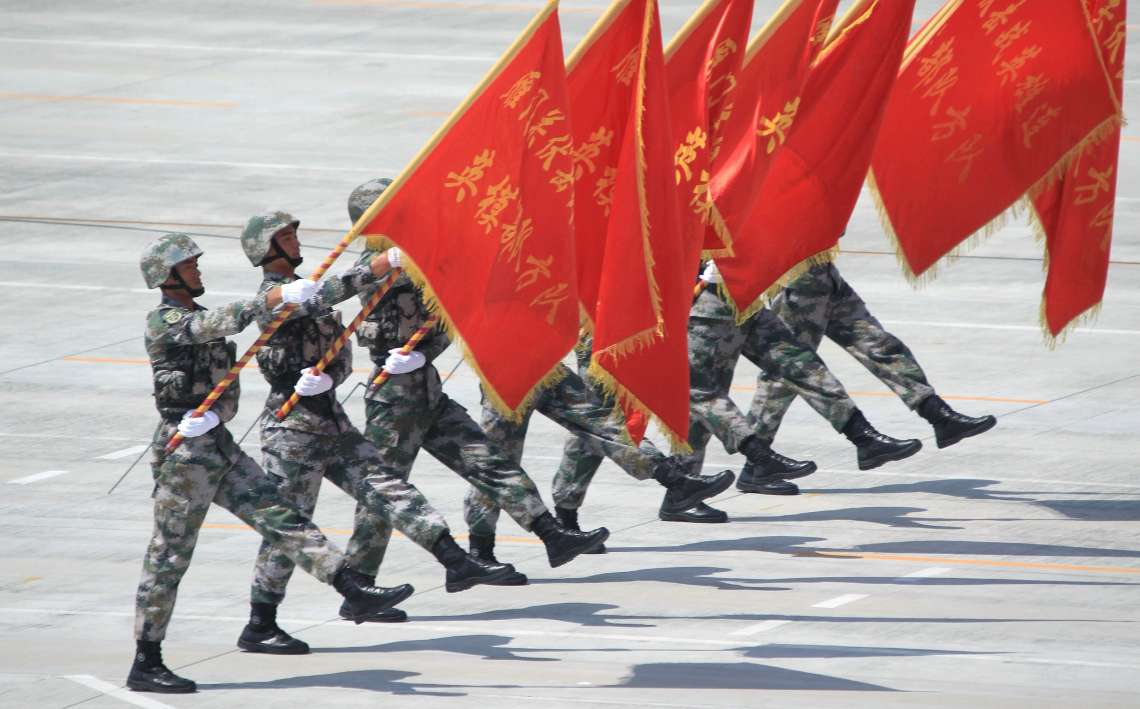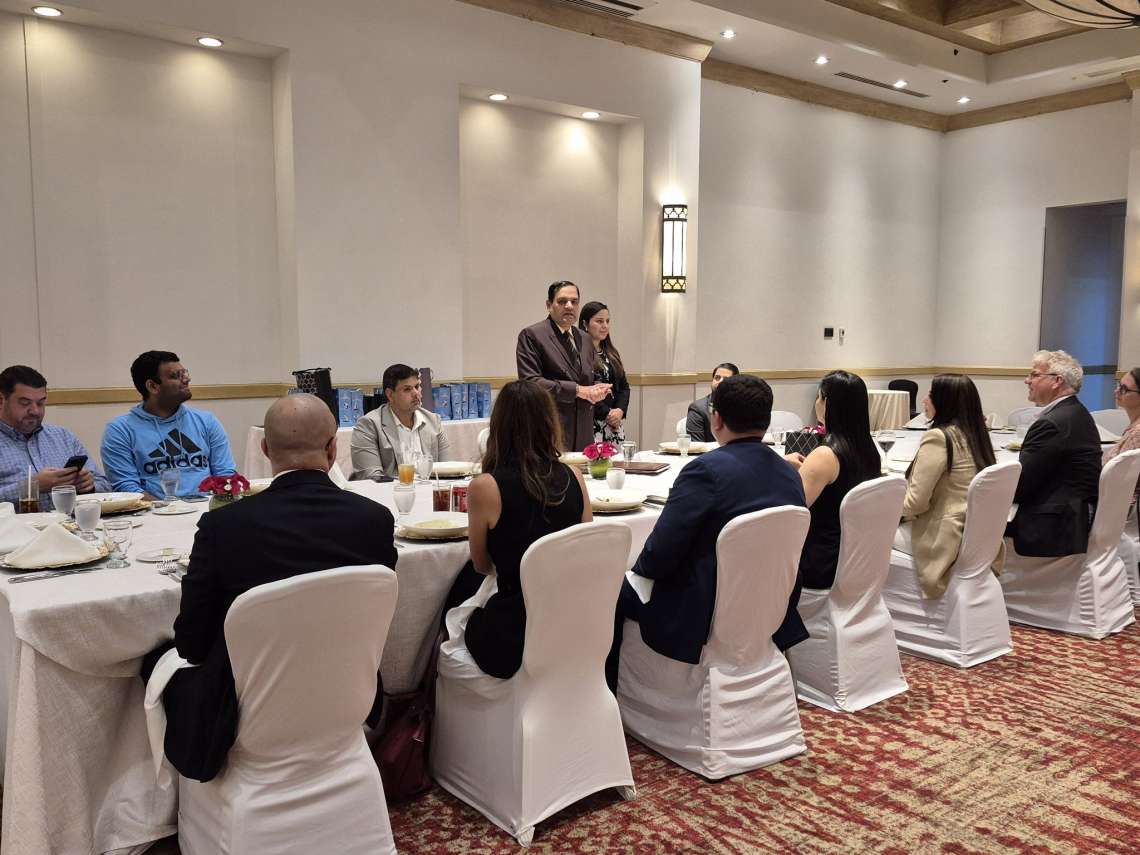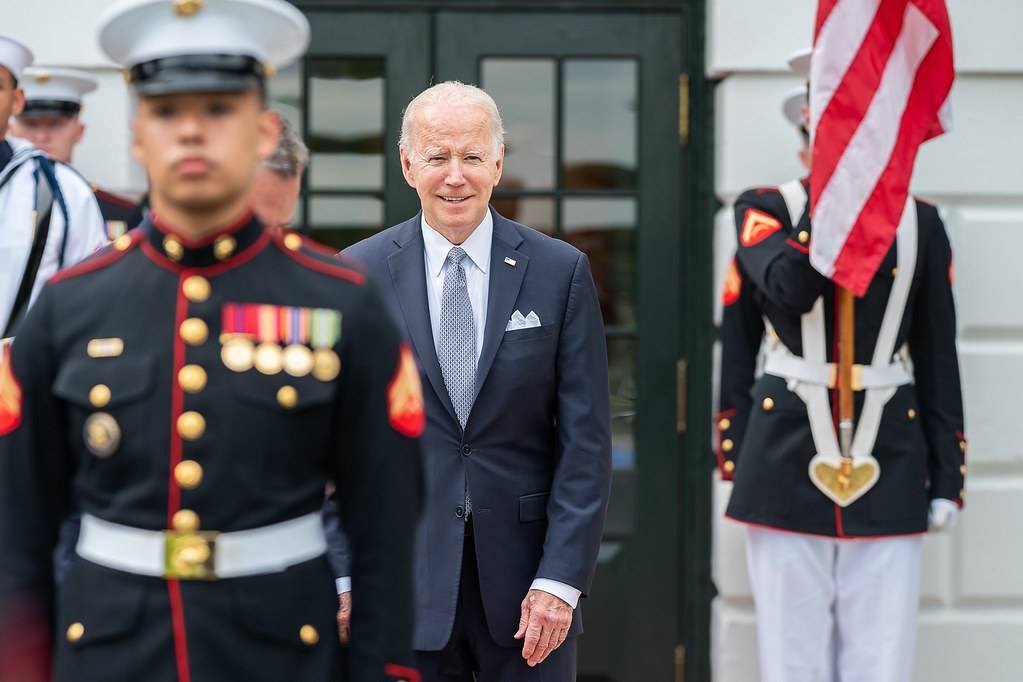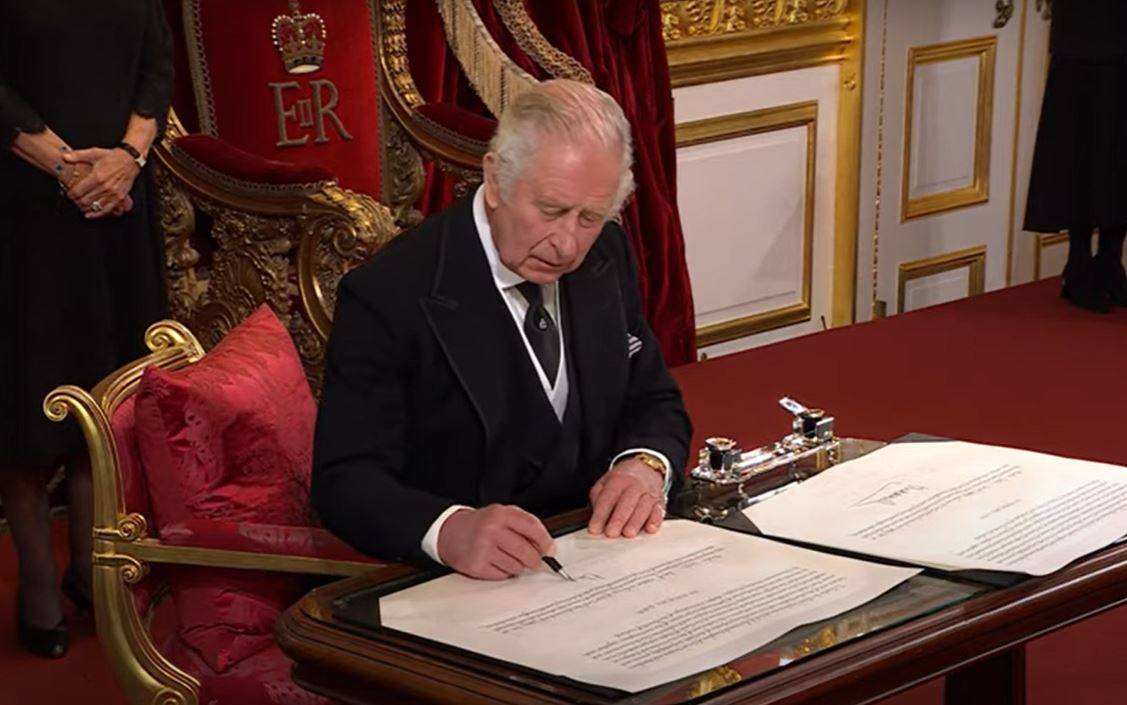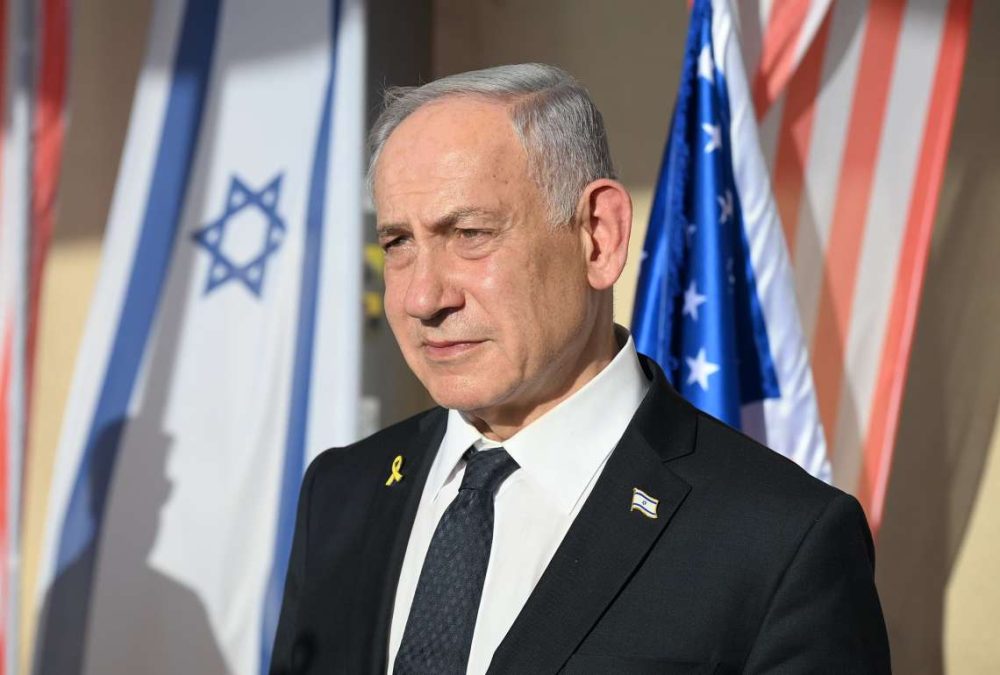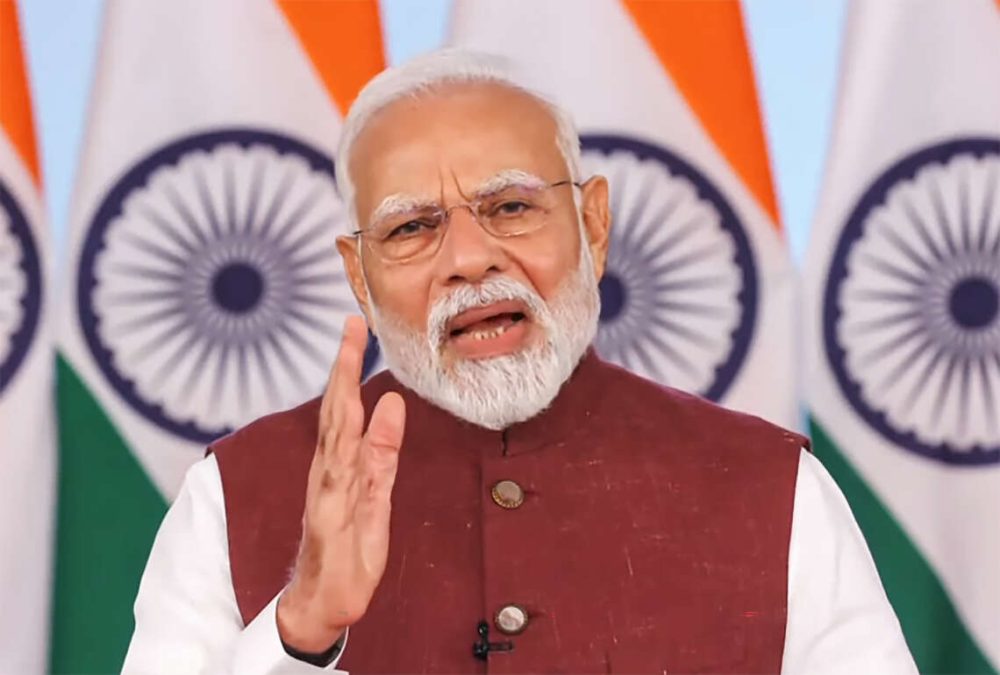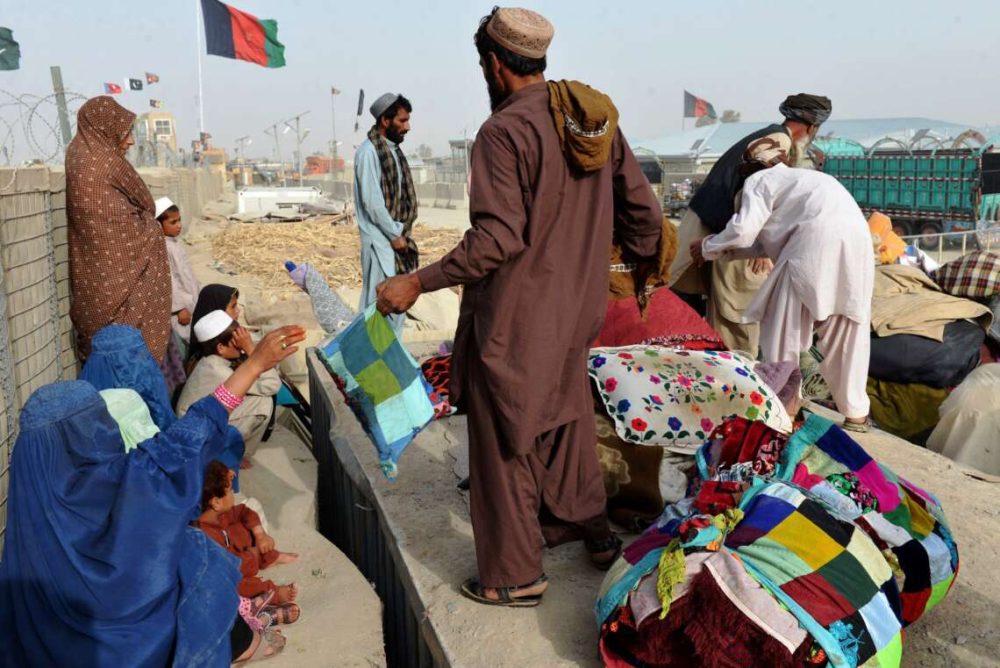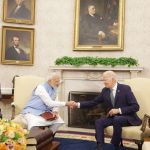Trade is one of the four pillars of this trade arrangement that was launched by US President Joe Biden in May 2022, joined by Prime Minister Narendra Modi among other leaders of the member countries, reports Yashwant Raj
India has stayed out of negotiations on trade at the first in-person ministerial meeting of 14-nation Indo-Pacific Economic Framework for Prosperity, held in Los Angeles.
Trade is one of the four pillars of this trade arrangement that was launched by US President Joe Biden in May 2022, joined by Prime Minister Narendra Modi among other leaders of the member countries. The other three are Supply Chain, Clean Economy, and Fair Economy.
India was led by Union Commerce Minister Piyush Goyal at the talks. He also held several bilateral meetings including with his US counterparts – Commerce Secretary Gina Raimondo, and US Trade Representative Katherine Tai.
India participated in discussions on the remaining three pillars and also signed on to the separate statements that were released on the negotiations. All 14 member nations signed the three statements, but only 13 signed the one on trade, with India deciding to sit it out.
No reasons were forthcoming.
“You have correctly noted that India is not now in the trade pillar,” US Trade Representative Tai said at a news conference with Commerce Secretary Raimondo in Los Angeles on Friday, at the conclusion of the discussion on Thursday. She added that she has been in regular touch with her Indian counterpart Goyal and that the two countries do and will cover the same issues – as at the IPEF – in their bilateral discussions, such as the Trade Policy Forum, which is to meet later in the year.
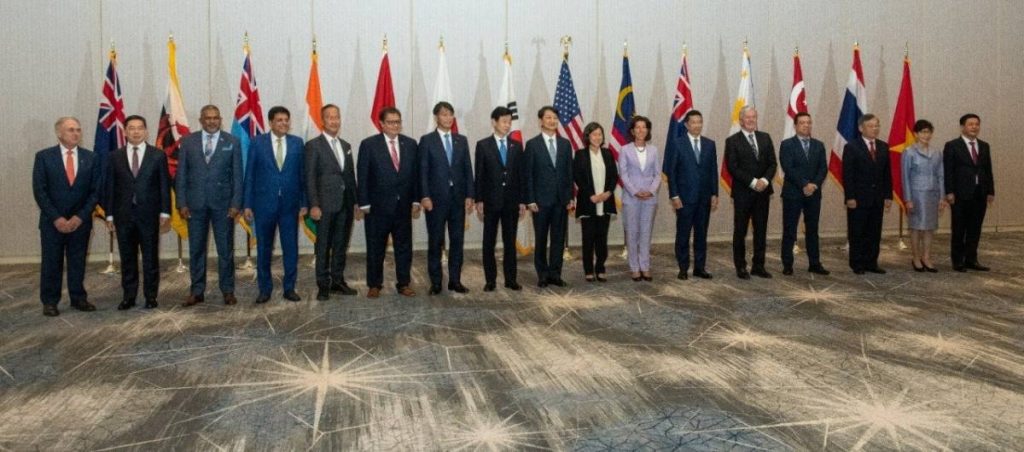
Raimondo said the IPEF is meant to be “flexible and inclusive”.
Trade remains a key irritant in the India-US relations, which have otherwise seen significant progress.
When pressed for specific “sticking points” behind India’s absence from trade talks, Tai, who is usually very careful with her words, couldn’t contain her frustration. “I both want to and I don’t want to, right,” she said. “Part of me wants to tell you everything that just happened. But part of me is here to build trust with our partners.”
Tai then took another shot at answering the question. “We obviously value each of the countries in this partnership and have a strong and important trading relationship with each one of them. I think that part of the challenge in bringing together a group of 14 is you’ve got 14 different points of view in that room. You’ve got 14 different ministers representing 14 different economies, who are part of 14 different bureaucracies, who come from 14 different political landscapes with stakeholders with needs and priorities. So I think that that might be the hardest part of an exercise like this.”
On the second pillar of supply chain, the 14 countries said they will “seek to coordinate actions to mitigate and prevent future supply chain disruptions and secure critical sectors and key products for our manufacturers”.
On the third pillar of clean economy, the countries said they will “seek to expand investment opportunities, spur innovation, and improve the livelihoods of citizens as the partners unlock the region’s abundant clean energy resources and substantial carbon sequestration potential”.
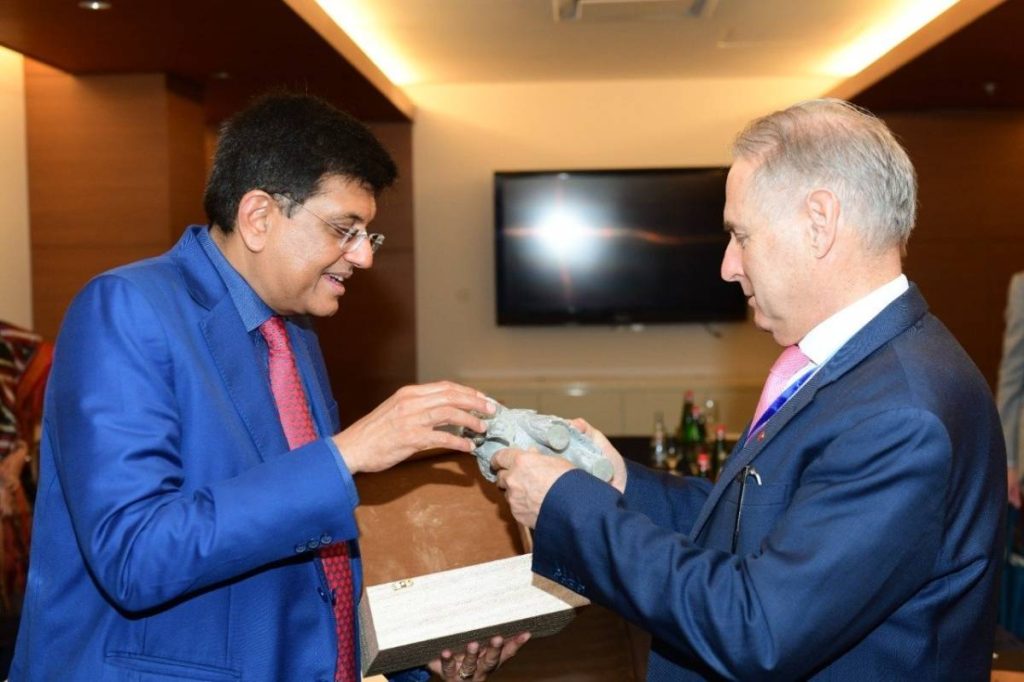
And on the final pillar of fair economy, they agreed to “seek to level the playing field for businesses and workers within partner countries by preventing and combatting corruption, curbing tax evasion, and enhancing transparency, recognising the importance of fairness, inclusiveness, the rule of law, accountability and transparency”.
On trade, on which India did not join in, the remaining IPEF partners said they “will seek high-standard provisions in areas that are foundational to resilient, sustainable, and inclusive economic growth, including labor, environment, digital economy, agriculture, transparency and good regulatory practices, competition, inclusivity, trade facilitation, and technical assistance and economic development”.
ALSO READ: Biden to consult leaders on UNSC expansion


